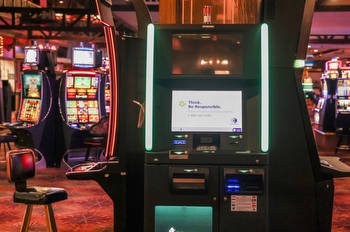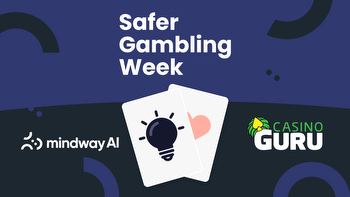Can AI Help With Responsible Gambling?

Alan Feldman, an executive for over 3 decades at a popular casino resort in America, had spent the majority of his career trying to tackle the issue of problem gambling as well as the consequences it could have on an individual personally, professionally, and, of course, financially.
Before leaving his executive position, he headed a team that developed a responsible gambling program that assisted with minimizing the risk of players becoming addicted, as well as helping them change their patterns of behavior when it came to gambling.
While attending ICE London, a huge networking conference in the gaming industry that is held annually, he observed a few businesses advertising novel products that will make use of artificial intelligence to forecast problem gambling in addition to identifying it.
Now an esteemed professor in the field of safe gambling at IGG at the University of Nevada, Feldman believes AI as a remedy for compulsive gambling “raises far more questions than answers.” However engaging and clever artificial intelligence may be, and no matter the leaps and bounds with which it has grown in a mere five years, there are still doubts as to its capability of being able to predict the patterns of a compulsive gambler.
One might argue: Don’t casinos online thrive on addicted gamblers? In reality, no. Apart from regulatory concerns, operators risk significant fines or even loss of their gaming licenses if they fail to provide adequate support and intervention for problem gamblers. From a business standpoint, it’s counterintuitive for them to encourage compulsive gambling.”
For any casino to be successful, they rely on new and returning players. This means that any customer must still be able to afford their day-to-day lives as well as those of their households if they are the breadwinners. Problem gamblers always end up at the same destination—broke and in debt.
But Could It Work?
However, experts in the field of responsible gambling disagree. Rutgers University director of gambling studies, Lia Nower, says that although many casinos have entire sections online dedicated to responsible gambling, operators are profit-driven. In her experience, they will always spend more on AI that can be used for marketing purposes or players’ preferences to get them to return, rather than on creating a program that will identify and assist players who are at risk.
In either scenario, the combination of artificial intelligence (AI) with gambling works well: automated systems, decision-making, and an endless supply of data. The rapid expansion of online gaming means there is potential to use AI to benefit human players. In the real world, however, it’s a little more complicated. It needs to be able to understand complex human behavior, manage privacy rules, and deal with regulatory difficulties.
Aarhus University-founded business Mindway AI is, however, attempting to do just that. It forecasts future problem gambling. Kim Mouridsen used research from Aarhus University to build the startup. Psychologists teach artificial intelligence algorithms to recognize behaviors linked to compulsive gambling.
The lack of a single indicator to determine a person’s problem gambling status is a major obstacle, admits Mindway CEO Rasmus Kjaergaard. Additionally, in the majority of casinos, humans use spending money and playing time as their primary indicators of problem gambling.
The Mindway system considers fourteen distinct flags. These involve time and money, but they also include canceled bank withdrawals, changes to the player’s playing schedule, and unpredictable bet adjustments.
After assigning a number between 1 and 100 to each component, the AI develops a risk assessment of every player, getting better with each time the individual gambles. They are ranked from green, which means they’re performing well, to crimson red, which means they should quit the game right away.
The Human Touch
The issue, though, is that there is continuous discussion over the best way to convey this information to a player at risk. While some online gaming companies employ emails or messages, others use pop-up messaging. Mr. Kjaergaard expects that clients will use his data to contact the player directly over the phone, based on the degree of risk involved. He claims that the data’s specificity makes these conversations more personalized.
At the moment, this technology can only be found in online gambling, as this level of tracking is not yet feasible with in-person gambling. Despite the company’s success, experts like Feldman still have their doubts when it comes to aiding in responsible gambling.
He believes there is merit in using the program on a broad scale, such as tracking gamblers’ spending habits (much like what you would find on your banking app). Feldman compares it to drinking: some days you may have one, other days you may have a few more, but that doesn’t mean you’re an alcoholic, does it?





































